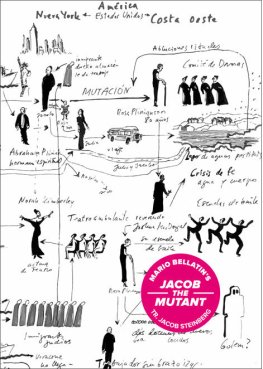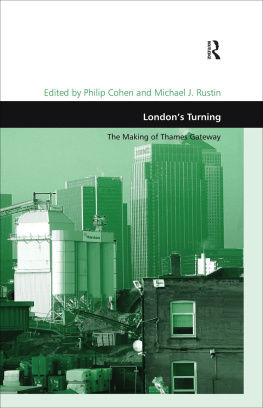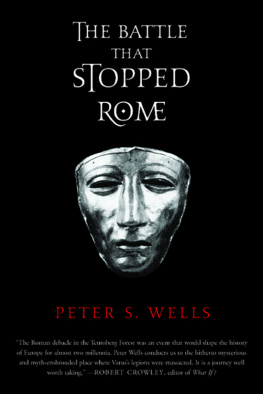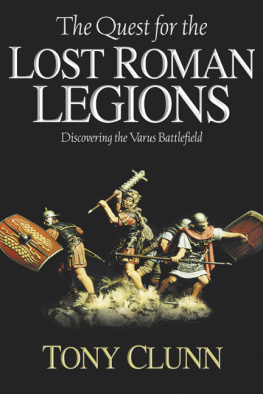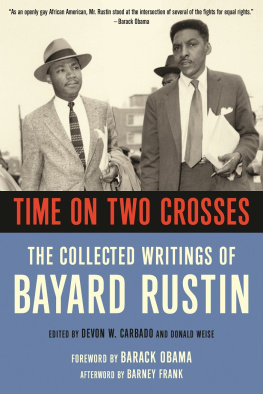Rustin E. Brian - Jacob Arminius: The Man from Oudewater
Here you can read online Rustin E. Brian - Jacob Arminius: The Man from Oudewater full text of the book (entire story) in english for free. Download pdf and epub, get meaning, cover and reviews about this ebook. year: 2015, publisher: Cascade Books / Wipf and Stock, genre: Religion. Description of the work, (preface) as well as reviews are available. Best literature library LitArk.com created for fans of good reading and offers a wide selection of genres:
Romance novel
Science fiction
Adventure
Detective
Science
History
Home and family
Prose
Art
Politics
Computer
Non-fiction
Religion
Business
Children
Humor
Choose a favorite category and find really read worthwhile books. Enjoy immersion in the world of imagination, feel the emotions of the characters or learn something new for yourself, make an fascinating discovery.

- Book:Jacob Arminius: The Man from Oudewater
- Author:
- Publisher:Cascade Books / Wipf and Stock
- Genre:
- Year:2015
- Rating:3 / 5
- Favourites:Add to favourites
- Your mark:
- 60
- 1
- 2
- 3
- 4
- 5
Jacob Arminius: The Man from Oudewater: summary, description and annotation
We offer to read an annotation, description, summary or preface (depends on what the author of the book "Jacob Arminius: The Man from Oudewater" wrote himself). If you haven't found the necessary information about the book — write in the comments, we will try to find it.
Jacob Arminius: The Man from Oudewater — read online for free the complete book (whole text) full work
Below is the text of the book, divided by pages. System saving the place of the last page read, allows you to conveniently read the book "Jacob Arminius: The Man from Oudewater" online for free, without having to search again every time where you left off. Put a bookmark, and you can go to the page where you finished reading at any time.
Font size:
Interval:
Bookmark:
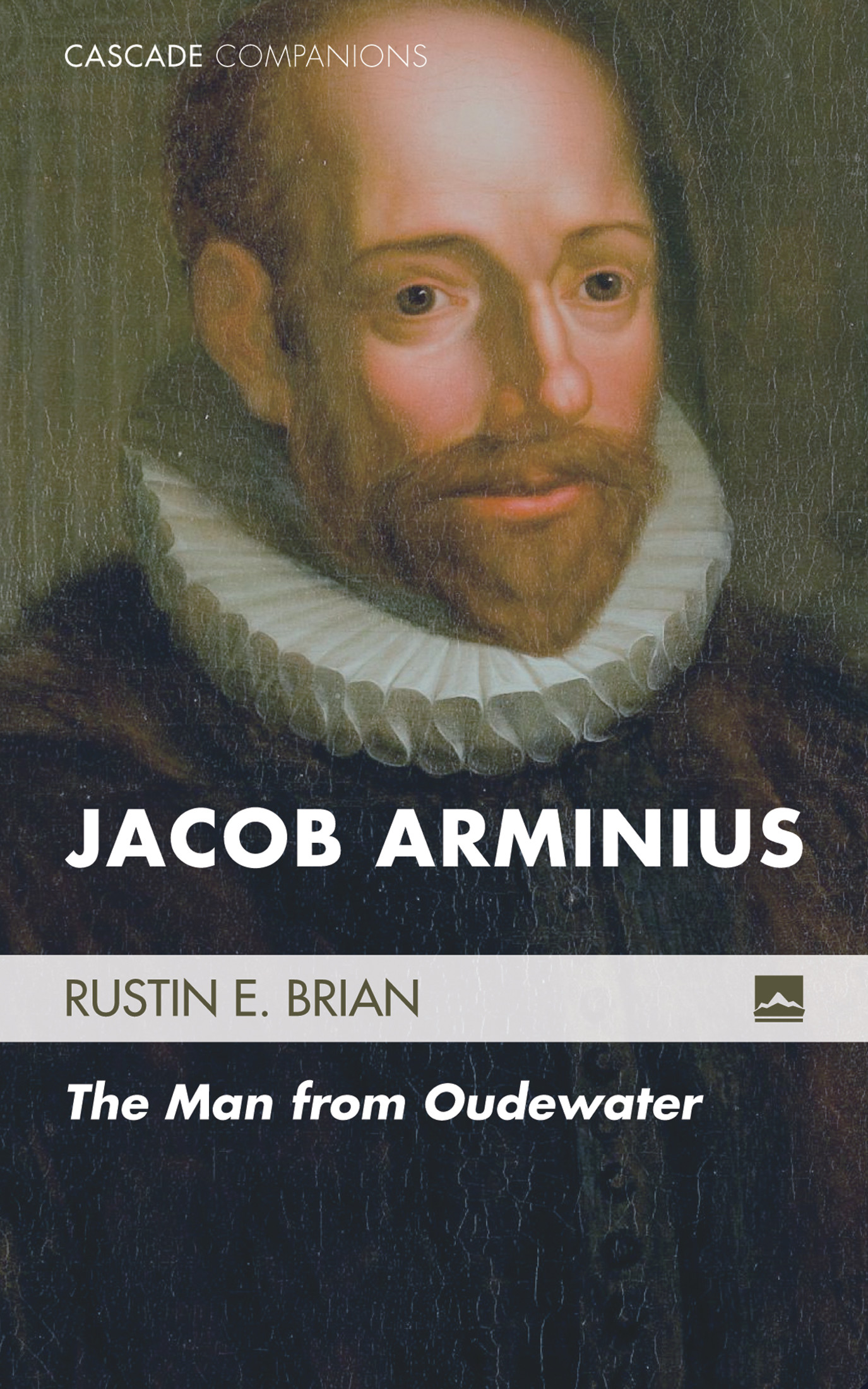
The Man from Oudewater
Rustin E. Brian

Jacob Arminius
The Man from Oudewater
Cascade Companions
Copyright 2015 Rustin E. Brian. All rights reserved. Except for brief quotations in critical publications or reviews, no part of this book may be reproduced in any manner without prior written permission from the publisher. Write: Permissions, Wipf and Stock Publishers, W. th Ave., Suite , Eugene, OR 97401 .
Cascade Books
An Imprint of Wipf and Stock Publishers
W. th Ave., Suite
Eugene, OR 97401
www.wipfandstock.com
ISBN : 978-1-4982-1976-1
E ISBN : 978-1-4982-1977-8
Cataloguing-in-Publication Data
Brian, Rustin Emery.
Jacob Arminius : the man from Oudewater / Rustin E. Brian
xii + 114 p. ; cm. Includes bibliographical references.
ISBN 13: 978-1-4982-1976-1
Cascade Companions
Arminius, Jacobus , 15601609. 2. Arminianism. I. Title. Series.
BX6195 .B74 2015
Manufactured in the U.S.A.06/09/2015
To Rev. Thomas Vance Findlay
Thank you for sharing your books and, more importantly, your life.
T he completion of this book was dependent upon many good friends whom I would be remiss not to thank. First thanks go to Tom Findlay who upon learning that I wanted to study Arminiuss theology, amassed a veritable library of rare, old, and quite valuable books to help in my work. Tom did not live to see this books completion, but he is alive on every page. Special thanks also go to Point Loma Nazarene University and to Mark Mann for both allowing me to present (and more importantly to learn) at the Rethinking Arminius Conference in 2012 , and for hosting my family during the summer of 2014 at the Wesleyan Center on campus. Over half of this book was written at PLNU. Thanks also to Lydia Heberling, and to the rest of the summer scholars and PLNU faculty and staff that assisted me and discussed Arminius with methanks! This book was also written at several other locations, including the home of my parents, Randy and Barbara Brian, my in-laws, Bryan and Laura Ellis, the church where I am fortunate enough to serve as pastor, Renton Church of the Nazarene, and the library at Seattle Pacific University. Thank you also to Preston Goff, Mark Mann, and Cody Stauffer who were kind enough to read portions of the working manuscript and offer advice. Thank you to my family, to my beautiful, kind, strong, and patient wife, Lauren; my fiery, passionate, and bold little girl, Lily; and my big, happy, and growing boy, Rowan. Thanks for dealing with conferences, deadlines, and the almost constant need to go and write. You are a blessing to me in ways I can never describe. Thank you. Finally, thank you to my publisher, Cascade Books, for taking yet another chance on this young scholar. Specifically, thanks to Christian Amondson for your help and for believing in this project.
I n 1575 most of the inhabitants of Oudewater, Holland, were brutally killed when Spanish Catholics assaulted the small Dutch town, which had recently converted to Protestantism. Arminiuss mother and many siblings were killed in the massacre. Arminius, who was fifteen at the time, escaped death because he was away studying at Marburg. We know that Arminius made a visit to the decimated town en route from Marburg to Rotterdam, and that he maintained connections with a few who remained and resettled in Oudewater, including an aunt. Despite not returning to live in Oudewater, I would contend that narrowly escaping the gruesome fate of so many of his family and friends left a lasting effect upon Arminius.
With this as a backdrop, I propose to outline the life and theology of Jacob Arminius, shedding fresh light on the Dutch reformers life and theology, in hopes that contemporary readers might discern just what it means to stand in the Arminian tradition today. In short, my hope is that readers of this introductory text will discover or rediscover the man behind the adjective.
Finally, as I read Arminius, his is a theology that is thoroughly unconcerned with being either Reformed or Catholic. The resulting catholic, or broadly-Christian, theology is one that is shaped and guided first and foremost by Scripture, as well as deeply pastoral concerns. In this way, Arminius, and the resulting tradition that he births, stands as a via media tradition between the two dominant pillars of Roman Catholic and Reformed theology. Arminiuss theology, thus, shares many points of agreement with Reformed theology, Lutheran theology, and Roman Catholic theology, but in a decidedly unintentional manner. My hope is to weave this together in a way that logically stems from his early experiences of loss as connected to the two dominant theological positions of his day: Reformed and Roman Catholic theology.
Part
Chapter
The Man behind the Adjective
T his book is written from a Wesleyan and catholic, and therefore an Arminian, perspective. I was not always a Wesleyan, though. Like many North Americans from the United States, my young faith was a strange amalgamation of fundamentalism and civil religion. When pushed, my theology typically drew upon what I now know to be Calvinistic categories of the Baptist persuasion, as well as woefully inadequate eschatologyor the doctrine of last things. It was not until my late teenage years that I encountered Wesleyan theology. I quickly and fully embraced it. It was then that I began to hear talk of Wesleyan-Arminian theology. But who was this Arminius character? The best answer I could give at the time was that he believed in free will. In a very real way, then, Arminius was, for me, simply the mysterious source of a modifying adjective.
Perhaps I was just a poor student, but my ignorance of Arminius held sway all the way through doctoral studies. In fact, it was only during a year spent at the University of Aberdeen, a Scottish Institution with highly Reformed sensibilities, that I encountered regular discussions regarding Arminius. In that setting, Arminius (and therefore Wesley) was commonly viewed as being either semi- or fully-Pelagian. My attempts to counter such critiques led me to realize that I knew nothing, really, about Arminius: both the man and his theology. It is my belief that, though the specifics of my experiences are unique, the overall condition of knowledgeor more accurately, lack of knowledgeabout Arminius, is all too common in so-called Wesleyan-Arminian circles. This is unfortuante, for Arminius provides a rich and powerful theological backdrop that renders Wesleys pastoral and homiletical theology all the more profound. In a very real way, Arminius provides the rigorous systematic theology necessary for Wesleys theology. Thus, while it is appropriate to use Arminiuss name adjectivally to modify Wesleyan theology, it is more appropriate to say that Wesleys theology depends upon Arminiuss theology, and is to its very core thoroughly Arminian.
It is appropriate that in the eighteenth century Wesley sought for religious renewal within the Anglican Church, and ended up changing the entire world, for Arminius did something quite similar in the sixteenth century. Arminius lived at a turbulent time of world-changing and destructive religious tension. He grew up and was trained in the midst of constant theological battles between Reformation Protestants and Counter-Reformation Roman Catholics. Additionally, he saw firsthand the all-too-real effects of the theopolitical colonizing efforts of the Spanish Inquisition. His hometown of Oudewater, for example, was completely destroyed. Those who did not flee were brutally massacred by Spanish Catholics in 1575 . Amidst such a brutal reality, Arminius refused to toe the major party lines. Rather, he dove deeply into Scripture, and stood firmly on what he found there. In particular, Arminius was convinced that much of the theology of the day made God out to be the author of evil, something Arminius worked tirelessly to reject. Engaging the work of Arminius, therefore, can be a dangerous thing. He challenged the categories of thought held so firmly by many of Christs followers in ways that always seemed to invite controversy. Arminius himself was constantly scrutinized for his theological beliefs and teachings. This was particularly true of his time as a professor. Though his theology spread like wild fire, Arminians faced that same scrutiny as well, for both Calvinistic Reformed theology and Roman Catholic theology continued to, for the most part, serve as the theology of choice for those in power in Europe.
Font size:
Interval:
Bookmark:
Similar books «Jacob Arminius: The Man from Oudewater»
Look at similar books to Jacob Arminius: The Man from Oudewater. We have selected literature similar in name and meaning in the hope of providing readers with more options to find new, interesting, not yet read works.
Discussion, reviews of the book Jacob Arminius: The Man from Oudewater and just readers' own opinions. Leave your comments, write what you think about the work, its meaning or the main characters. Specify what exactly you liked and what you didn't like, and why you think so.

